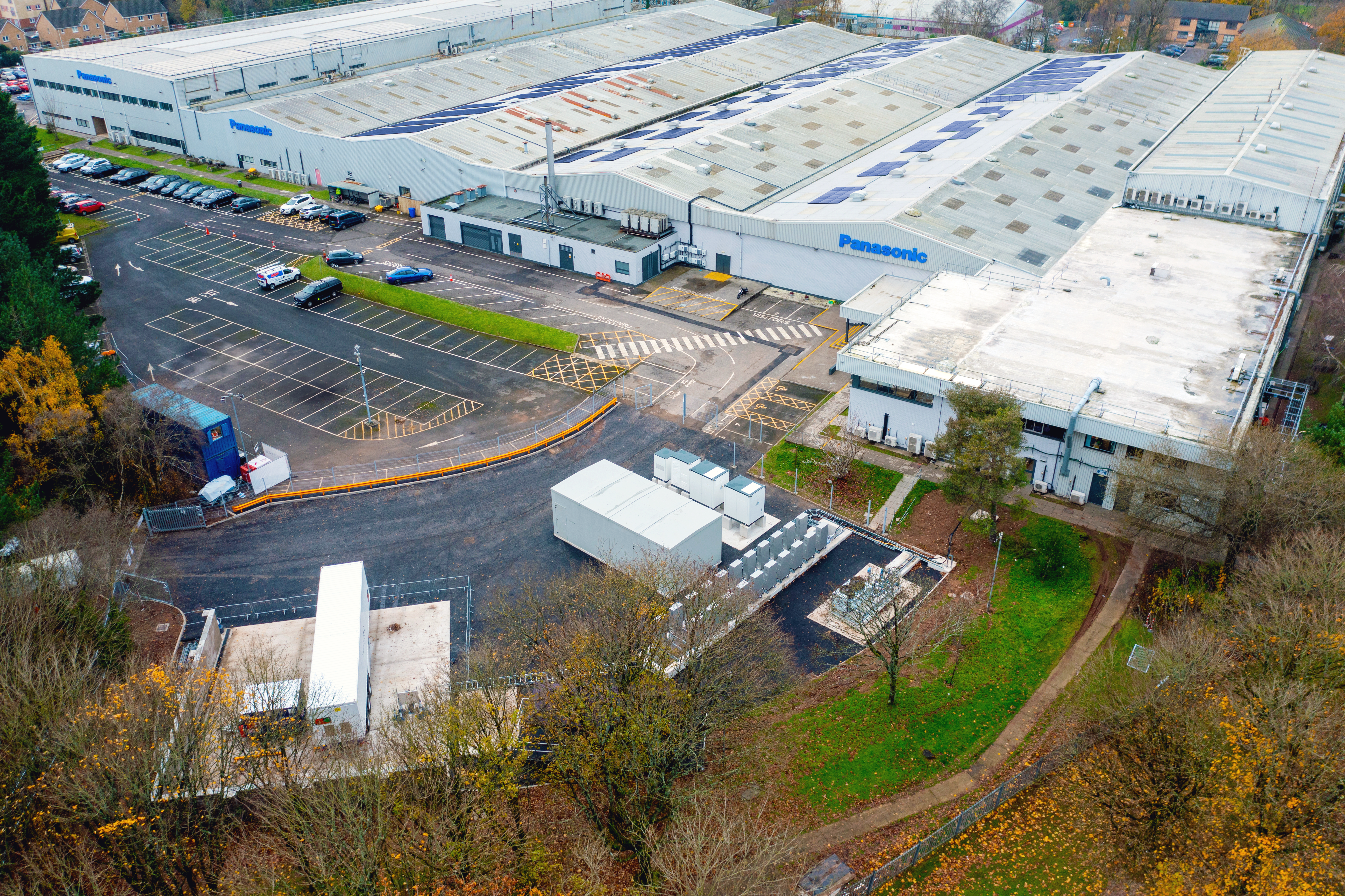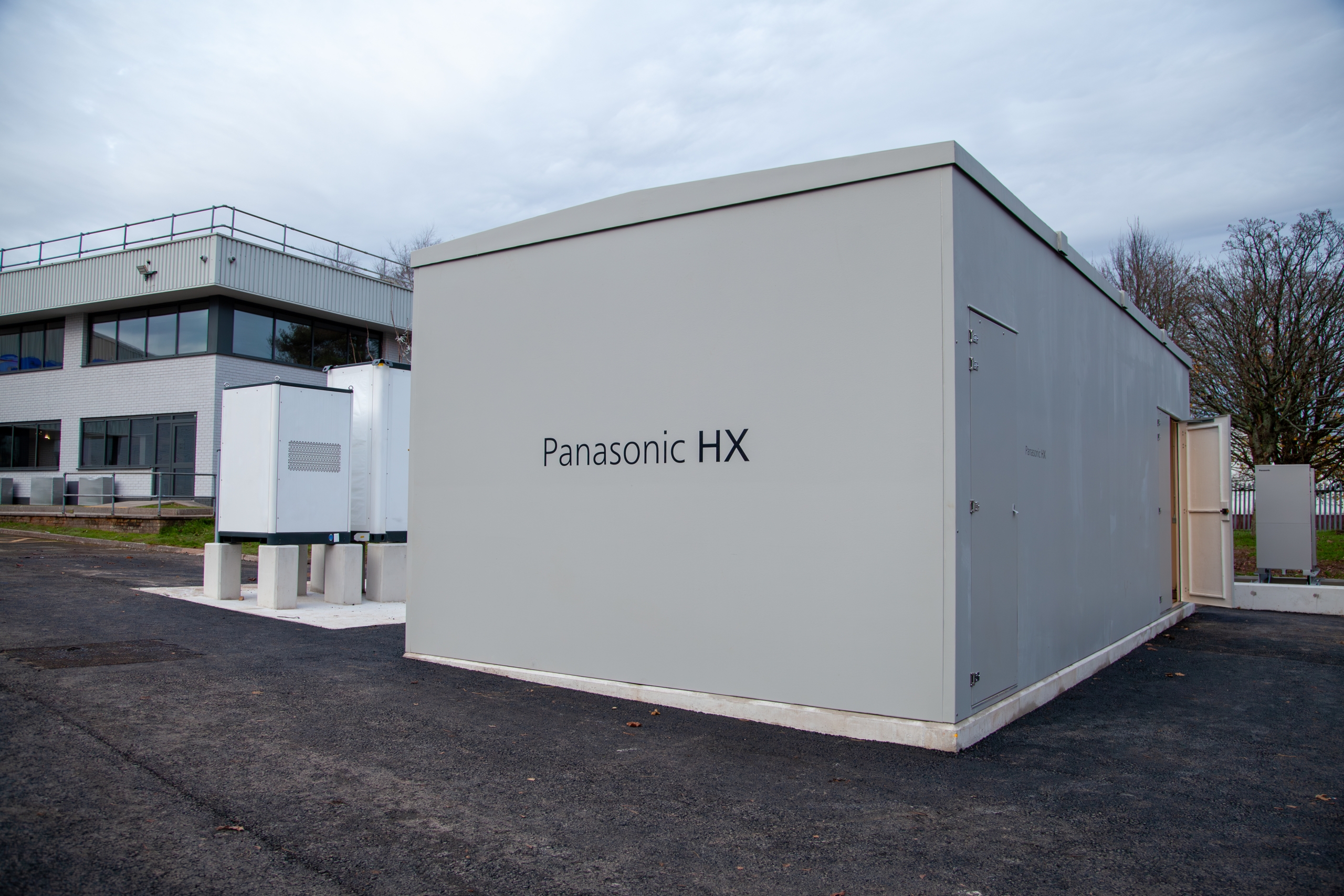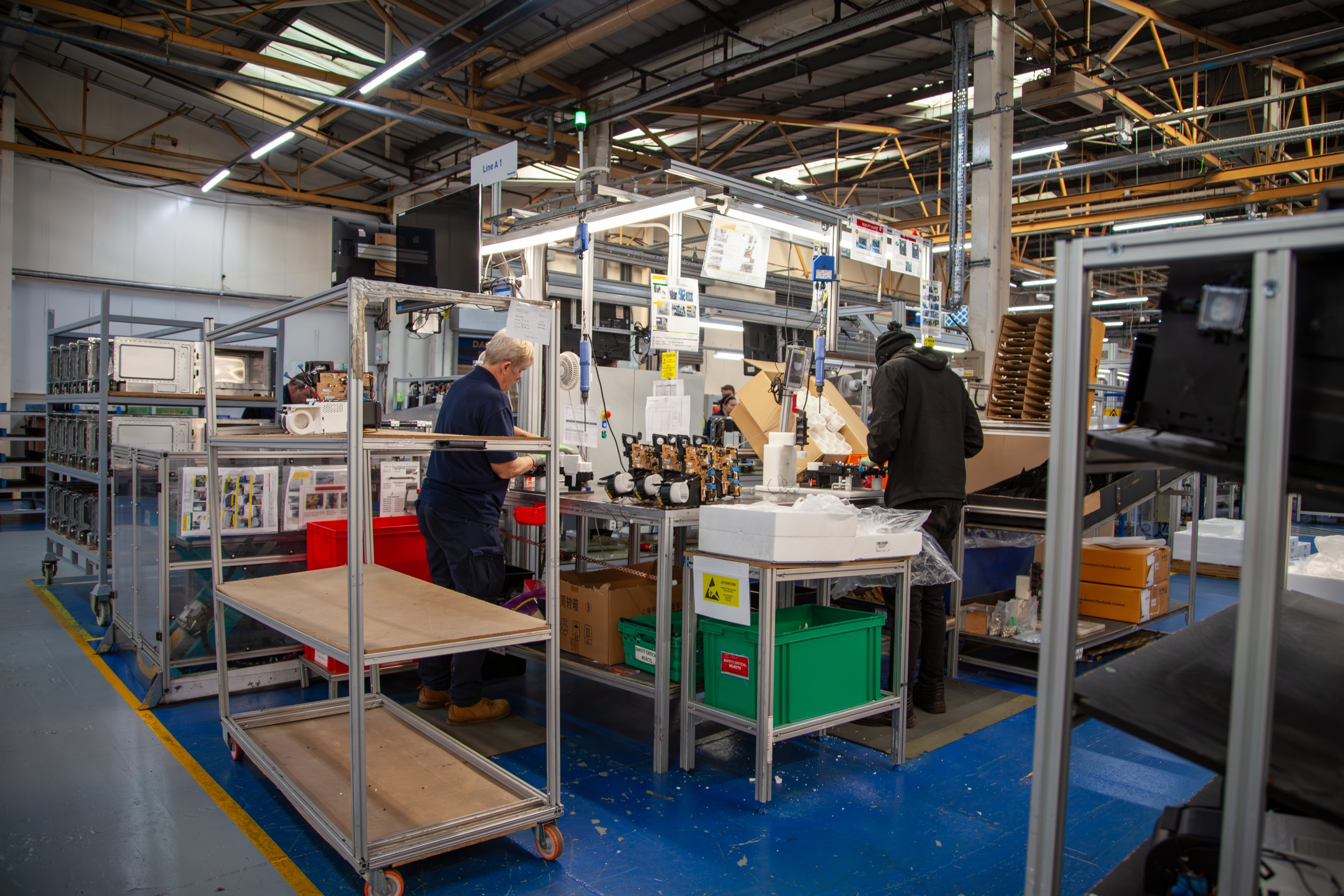4 minute read - 4th December 2024
Panasonic opens renewable energy facility at Cardiff factory
Panasonic Manufacturing UK (PMUK) has opened Europe’s first Panasonic HX demonstration site to be powered by renewable sources. Its 50-year old microwave oven factory in Cardiff has been fitted with a combination of hydrogen fuel cells powered by green hydrogen, solar PV and battery storage, all steered by Panasonic’s proprietary energy management system (EMS).
The Panasonic HX installation will power the factory’s entire microwave oven assembly using renewable energy. The Cardiff site will begin commissioning renewable energy from December 2024, and will be fully operational via its EMS in March 2025.
Panasonic is unique in its efforts to generate electricity for its factories with 100% renewable energy by using green hydrogen combined with solar energy to generate electricity in-house and control the coordination of three energy sources, including the batteries which store the PV energy when the factory isn’t in operation, such as on weekends. The company is committed to the long-term development of hydrogen and sustainable energy solutions as part of its Panasonic HX business strategy.

The Panasonic manufacturing plant in Cardiff has been fitted with a combination of hydrogen fuel cells powered by green hydrogen, solar PV and battery storage / Picture: Panasonic
Never miss the latest manufacturing news by signing up to our newsletter here
Masahiro Shinada, president & CEO of Panasonic Corporation, said: “This facility will use green hydrogen produced in the UK. We believe that this is the place where we can take a big step towards the future by combining British and Japanese technology. It is our sincere hope that this facility can be used as a showcase to foster diverse partnerships, accelerate innovation through the combination of technologies, and contribute to the development of the UK’s hydrogen-related industry. Now, with the launch of Panasonic HX here at PMUK, we look forward to the next chapter. In ten years, or even 20 years, I hope this facility will be seen as a birthplace of innovation – where we helped build a hydrogen society and laid the foundation for a decarbonised future.”
Panasonic is working towards reducing CO2 emissions from its own operations to virtually net zero by 2030 – contributing to a total of 110 million tons of own emission impact through reduction and avoidance of CO2 emissions. Its long-term environmental vision, Panasonic GREEN IMPACT, defines ambitious commitments to address climate change and contribute to a more sustainable future.
As part of this mission, Panasonic is investing approximately 130 million Euros (c. £108m) to develop the core Panasonic HX technology in Japan and launch this pilot in Cardiff, plus another location in Europe in 2025. The long-term goal of this investment is to demonstrate that 100% of the electricity consumed for the microwave oven production at this site can be powered entirely by renewable sources.

The first Panasonic HX installation in Europe will power the Cardiff factory’s entire microwave oven assembly using 100% renewable energy / Picture: Panasonic
Panasonic’s HX solution at its Cardiff factory is expected to deliver wide-ranging operational and sustainability benefits. By being able to produce its energy onsite, the factory will benefit from more reliable electricity provision. This decentralised approach to energy demand management increases the company’s energy resilience in a volatile market. By integrating an energy management system and storage batteries, the factory will be able to scale its energy needs when ramping up productions, for example.
The heat generated by the Panasonic hydrogen fuel cells as a by-product of the electricity production will be used to heat spaces and domestic hot water, further improving overall energy efficiency. By replacing the facility’s gas boiler with this renewable energy source – a combination of a heat exchanger and Panasonic’s heat pump technology – fossil fuels will cease to be used, representing a significant and positive environmental impact.
The 21 5KW fuel cells have 95% energy efficiency when converting green hydrogen into electricity and heat energy. At the same time, the factory has been able to introduce a number of electricity saving measures such as motion detected lighting, push taps, small cisterns etc.
Robert Blowers, managing director at Panasonic Manufacturing UK, said: “The Proof of Concept at our Cardiff factory will show that innovative energy solutions can be implemented into existing older factories and buildings. Our manufacturing plant here in Cardiff turns 50 years old this year and has shipped over 90 million finished goods since 1974. Now, it is Europe’s first Panasonic HX demonstration site, with the potential to be an inspirational ‘beacon project’ for sustainable manufacturing. And it proves that it is possible to retrofit older industrial buildings with leading-edge renewable energy technologies.”

Panasonic says it is working towards reducing CO2 emissions from its own operations to virtually net zero by 2030 / Picture: Panasonic
By demonstrating the HX solution at its factory in Wales, Panasonic aims to develop a technology set-up which is optimised towards local conditions (including temperature, days of sunshine and overall climate). At its Cardiff facility, Panasonic has installed 21 5kW hydrogen fuel cells as part of a decentralised system optimised for the amount of electricity used by the factory, combined with 372kW solar power and 1MWh capacity of battery storage to provide renewable energy to the facility and collect the electricity of the PV system even at times when the factory isn’t in operation. The hydrogen fuel cells will use green hydrogen produced in the UK, so that no fossil energy is needed to generate the hydrogen.
Panasonic’s EMS will leverage external local weather forecast data, including changes in weather conditions and demand fluctuations, to maintain a consistent balance between electricity supply and demand, and gather data to minimise losses in the generation, storage and transmission of renewable energy and ensure a stable supply of energy.